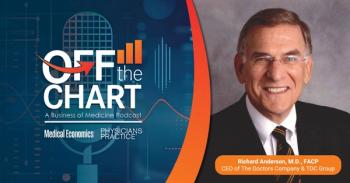
Tax Court Rules on Physician-Hospital Employment Bonuses
A recent U.S. Tax Court ruling should provide food for thought for physicians accepting guaranteed bonus payments from their hospital employer.
Robert Lane, a CPA with the Dallas accounting firm of Lane Gorman Trubitt, PLLC, explains the U.S. Tax Court's April 20, 2015, opinion on the tax treatment of relocation bonuses paid by hospitals to physicians and what happens if the physician does not remain for the entire length of the contract.
Lane is head of Lane Gorman Trubitt's Healthcare Group, who has been in practice for more than 30 years. He is certified as a Personal Financial Specialist (PFS) by the American Institute of Public Accountants (AICPA) and holds a state of Texas CPA license. In addition, he holds both Texas and federal securities licenses.
Martin Merritt: What is the issue in
Robert Lane: Hospitals frequently guarantee payments to physicians in an underserved community as part of its efforts to recruit and retain physicians. Under the agreement, the physician isn't required to repay … if he remains in the community. These are considered bona fide loans. The question is whether this is a forgiveness of debt for tax purposes?
MM: Can you summarize the tax rules relating to loans?
RL: Money received pursuant to a loan cannot be included in gross income at the time that it is lent because there is an obligation to repay it. However, if the obligation to repay is forgiven or canceled by the lender, gross income may arise.
In general, cancellation of debt (COD) produces income in an amount equal to the difference between the amount due on the obligation and the amount paid for the discharge. The rationale for this principle is that cancellation of indebtedness provides the debtor with an economic benefit … equivalent to income.
MM: So what happened in this case?
RL: Darrel Wyatt is a physician who moved to Putnam County, Florida - a medically underserved community - in 2006 after the local hospital recruited him to practice there. Wyatt and the hospital entered into a recruiting agreement (agreement) that provided, among other things, that he would practice medicine in Putnam County for a minimum of four years and that the hospital would provide certain assistance to help him establish his practice.
The hospital and Wyatt also entered into what was, in effect, an income guaranty with repayment forgiveness. A simultaneously executed addenda to the agreement provided that the hospital would advance Wyatt up to approximately $33,000 (the "guarantee amount") per month for 12 months (the "guarantee period").
During the guarantee period, Wyatt received $260,627 from the hospital pursuant to the agreement and addenda. Dr. Wyatt never left the area, so that amount was forgiven and cancelled over a 36-month period occurring from 2007 to 2010.
In the tax court, Wyatt argued that the amount he received from the hospital was a nonrecourse loan that he was not personally liable to repay, and therefore he didn't receive income when the loan was forgiven.
The court concluded that the amount received by Wyatt from the hospital was a bona fide loan, the forgiveness or cancellation of debt of which gave rise to income.
The court stated that the absence of a promissory note isn't dispositive as to personal liability, noting that if Wyatt failed to live up to his end of the agreement, the hospital could have sued him to recover the unpaid loan. Other rights that the hospital had under the agreement, including that it could ask Wyatt to grant it a perfected security interest under certain circumstances, were also inconsistent with his assertion that he wasn't personally liable; and the fact that the hospital didn't find it necessary to take these actions didn't negate his liability.
In addition, the court noted that cancellation of indebtedness can potentially give rise to income even if a taxpayer isn't personally liable for a debt.
MM: What should other physicians take away from this opinion?
RL: Physicians should recognize that any form of incentive, advance, loan, guarantee, or bonus structure can have tax consequences, especially if the repayment is forgiven. It is important, therefore, for physicians to consult with a CPA knowledgeable in the tax consequences involved in complex healthcare employment contracts and arrangements.
Newsletter
Optimize your practice with the Physicians Practice newsletter, offering management pearls, leadership tips, and business strategies tailored for practice administrators and physicians of any specialty.






